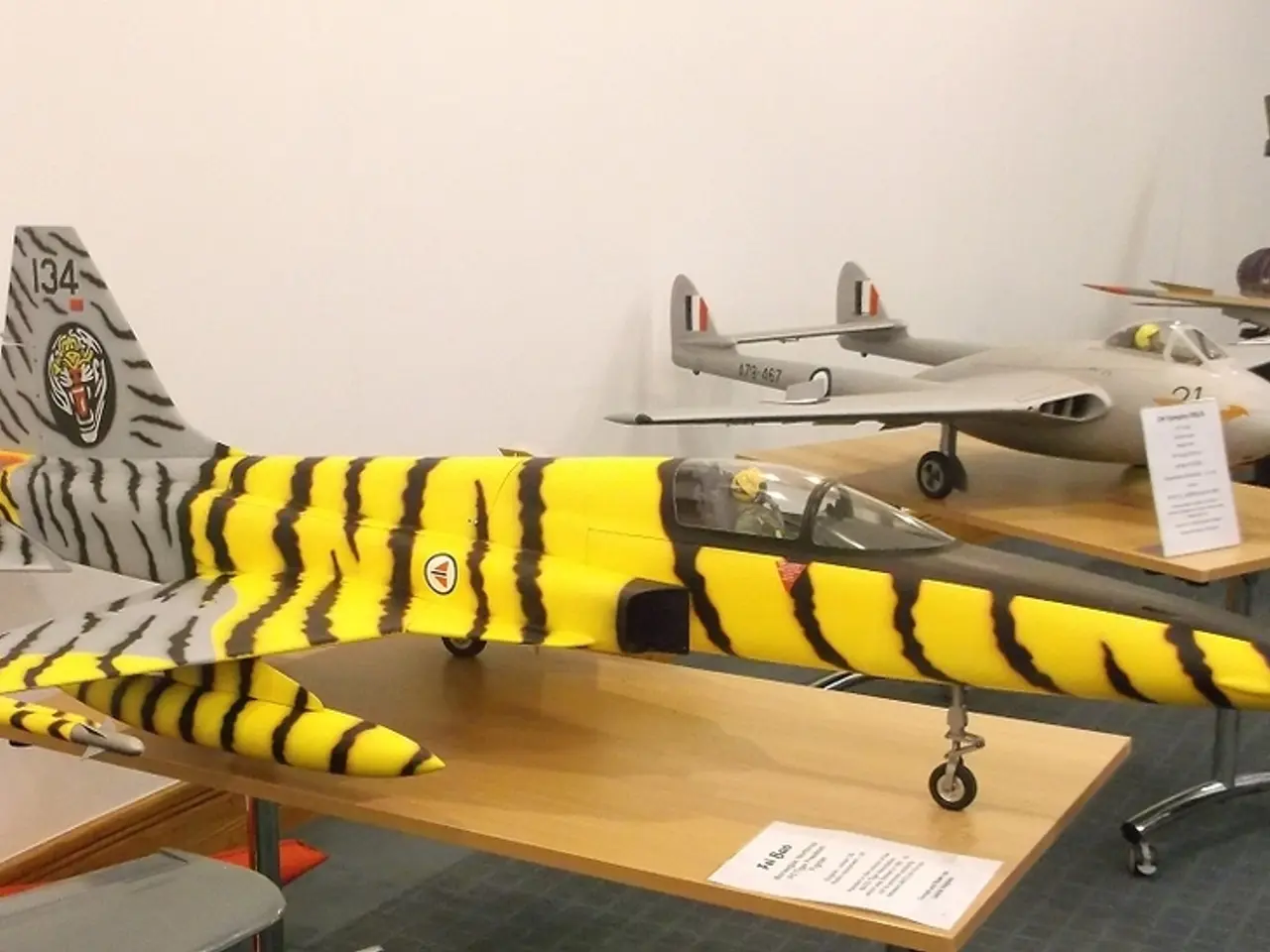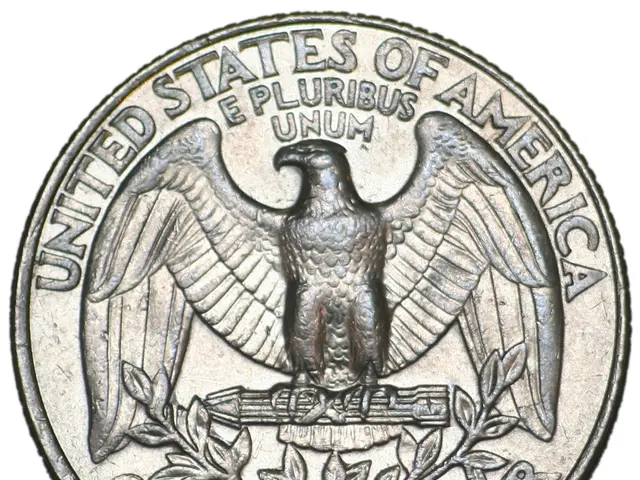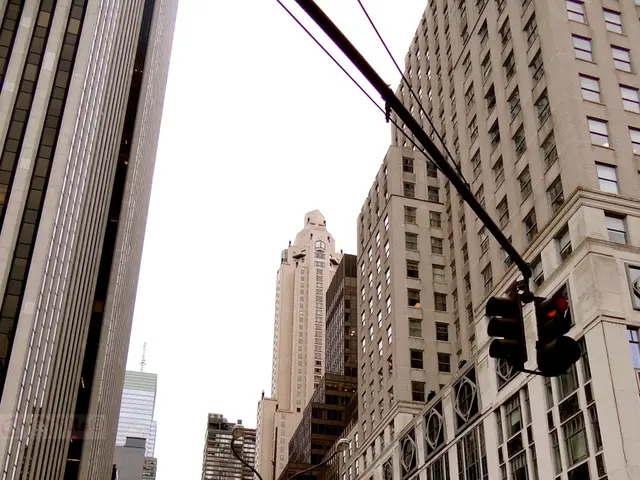Airbus is propelling the advancement in aviation fuel's environmental friendliness
Airbus, a global leader in the aviation industry, is making significant strides in the production and use of Sustainable Aviation Fuel (SAF). The company is collaborating with various airlines, energy producers, and research institutions to promote the use of SAF and reduce the carbon footprint of the aviation sector.
In 2023, Airbus signed agreements with airlines Volotea and AirCorsica, and reached an agreement with Air France to purchase SAF for travel between five cities in Europe. The company also supplied SAF for internal business travel. Notably, IndiGo was the first customer to take advantage of Airbus' offer of SAF for aircraft delivery.
Airbus showcased its commitment to SAF by conducting demo flights, such as the one at the Paris Air Show 2023, using SAF in the H160. The company aims to increase the number of employee routes supplied with SAF and is seeking to sign agreements with other airlines.
In an effort to support new technology and fuel production, Airbus set up a strategic partnership with DG fuels in the United States. The company also contributes to the production and use of SAF primarily through a partnership with Indonesian researchers and institutions. Airbus' Singapore branch collaborates with Indonesia’s Bogor Agricultural University (IPB) in West Java to develop SAF using organic feedstocks such as crop residues, wood, and plant waste.
Airbus' partnership with IPB involves research on biomass availability, logistics, supply chain mapping, and factory location optimization to minimize production and transportation costs in Indonesia. The aim is to scale biomass-based SAF production and position Indonesia as a major SAF producer by tapping into biomass feedstocks like empty palm fruit bunches and rice straw.
In addition to these efforts, Airbus partners with energy producers, airlines, and airports worldwide to help the industry meet its goal of 17.5 billion litres of SAF by 2030. The company also collaborates with Lanzajet to advance the building of SAF facilities and has signed a Memorandum of Understanding with Masdar, an Abu Dhabi energy company, to further develop SAF production.
Airbus has made a significant contribution to the development of local SAF production in Australia through a partnership with Qantas and the Queensland Government. The company's helicopter division, Airbus Helicopters, uses SAF for development test flights and training in Marignane, France, and Donauwörth, Germany.
In the Airbus Commercial Aircraft business, the second VOLCAN test flight campaign kicked off in March 2023, using an A321neo powered by 100% SAF, analyzing residual emissions. The Beluga, a transport vehicle used by Airbus, has been flying daily since December 2019, using SAF in its oversized operations as a key contributor in the roadmap to decarbonise.
In November 2023, Airbus and ICAO signed a Declaration of Intent to assess South America's SAF feedstocks and production under the ICAO ACT-SAF initiative. In 2023, Airbus used over 11 million litres of SAF in its operations, which is double the volume used in 2022. The use of SAF contributed to a reduction of CO emissions by 23,587 tonnes in 2023.
Airbus' efforts in promoting and developing SAF have exceeded its initial 2023 target of 10% of the total fuel used across its divisions by more than a million litres. The company's commitment to advancing scalable and sustainable aviation fuels reflects its dedication to reducing the aviation sector’s carbon footprint.
[1] Airbus and IPB Collaborate to Develop Sustainable Aviation Fuel in Indonesia [2] Airbus and Masdar Announce Collaboration to Advance Sustainable Aviation Fuel Production [3] Airbus and Lanzajet Announce Collaboration to Advance Sustainable Aviation Fuel Production [4] Airbus and Air France-KLM Announce Sustainable Aviation Fuel Agreement [5] Airbus Sets Sights on Decarbonising Aviation with Sustainable Aviation Fuel
- Airbus, in collaboration with Indonesia's Bogor Agricultural University (IPB), is developing Sustainable Aviation Fuel (SAF) using organic feedstocks like crop residues, wood, and plant waste, with the aim of positioning Indonesia as a major SAF producer.
- Airbus has announced a collaboration with Masdar, an Abu Dhabi-based energy company, to further develop Sustainable Aviation Fuel (SAF) production.
- Airbus has partnered with Lanzajet to advance the building of Sustainable Aviation Fuel (SAF) facilities.
- Airbus and Air France-KLM have reached an agreement to purchase Sustainable Aviation Fuel (SAF) for travel between five cities in Europe.
- Airbus' commitment to Sustainable Aviation Fuels (SAF) reflects its dedication to reducing the aviation sector's carbon footprint and decarbonising aviation.




